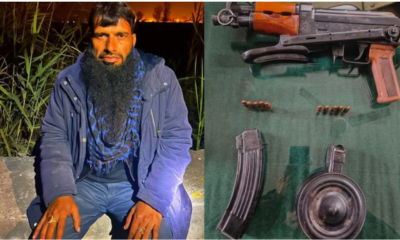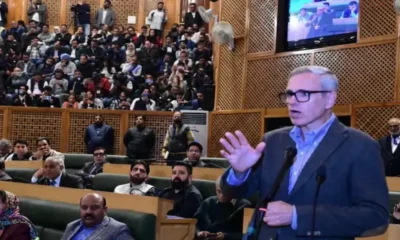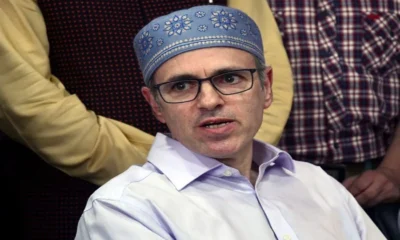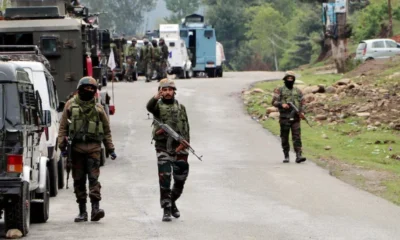The Delhi High Court yesterday (Monday, Aug 19) issued notice to the Centre and the Jammu and Kashmir (J&K) administration seeking their response by Thursday, Aug 22, on a habeas corpus writ petition filed on behalf of Shah Faesal, an IAS topper from J&K who resigned earlier this year to take up politics, alleging that he was detained illegally at the New Delhi airport and taken to Srinagar against his wishes.
The plea was filed by Md Hussain Pader, the Pairokar or next friend on behalf of Shah Faesal who is allegedly under illegal detention in Kashmir. The court will hear the case on Friday, August 23.
The matter was heard by a Division Bench of Justices Manmohan and Sangita Dhingra Sehgal after it was mentioned for urgent hearing before Chief Justice DN Patel. The bench directed the Central government’s Bureau of Immigration, the State of Jammu and Kashmir and the J&K Police to file their replies to his habeas corpus plea, which also urges that his wife be allowed to meet him.
The Court has orally permitted the wife to meet Faesal for an hour.
Solicitor General Tushar Mehta, appearing for the government, opposed Faesal’s contention and said that he will file a detailed response.
Shah Faesal, an IAS 2009 topper who quit the services to start his political party – Jammu and Kashmir People’s Movement (JKPM) party – had gone to Mumbai via Delhi on Aug 9 for an interview with the BBC on the Kashmir issue and returned to Delhi on Aug 10.
Also Read: Veteran music composer Khayyam passes away at 92 – Bollywood fraternity condoles
In the intervening night of Aug 14-15, the plea says that Faesal was illegally picked up from the New Delhi airport when he was on his way to take an international flight to USA, via Istanbul and Frankfurt, to complete his academic fellowship at Harvard University, US.
Faesal was reportedly detained under the Public Safety Act. He was whisked away to J&K against his wishes and reportedly accommodated in a makeshift detention centre at the Centaur Hotel in Srinagar.
The petition alleges high-handedness of concerned authorities in not disclosing the charges based on which the detention order may have been issued. JKPM office bearer Pader who filed the petition said he has derived all information through wife of Shah Faesal who was allowed to meet him once on Aug 17 at Centaur hotel in Srinagar.
While seeking the court’s directions to the authorities to “immediately set him at liberty”, Faesal submitted that his life is at “risk”, and the “illegal detention amounts abduction”.
The petition said Faesal’s illegal detention followed the abrogation of special status of Jammu and Kashmir under Article 370 by a Presidential order on August 5.
The petition states that not informing grounds of arrest to a detenue is violative of all safeguards mentioned in the CrPC. Shah Faesal was even not been produced before a Magistrate at New Delhi to seek transit demand from Delhi to Kashmir. The materials like twitter and facebook posts and the BBC interview are all speaking of the best intentions of Faesal where he asked people of Kashmir to maintain calm and use the judicial route to challenge the abrogation.
“At the immigration counter he (Faesal) was suddenly taken in for questioning and after that he was illegally detained. He was not allowed to board his international flight and the detaining authorities cancelled his boarding passes,” the petition said.
“The next day, it was learnt through the media that he had not been allowed to travel to Harvard University to complete his fellowship/academic commitments. Instead he has been whisked away to Srinagar,” the plea stated.
It claimed that Faesal has never committed any crime nor been named in any FIR. He is not part of any ongoing legal proceedings in any court of law and that there are no pending proceedings or cases against him.
Already six days in illegal detention, Faesal has not been made known of the grounds of arrest or detention, the plea added.
“All the safeguards mentioned in the CrPC (Code of Criminal Procedure) before any arrest or detention have been violated. In particular, the petitioner (Faesal) was not produced before the local magistrate in New Delhi to seek the transit remand,” the plea contended.
“The petitioner has a wife, Iram Rashid, who is a KAS officer and they have a young child Jami, aged around four years. When his wife met him briefly on August 17 at the detention centre, Srinagar, he was looking very frail and was very apprehensive and fearful for his life, physical safety and liberty,” it said.
Faesal has been posting tweets and Facebook content critical of abrogation of Article 370 that gave special status to J&K, and split the state into two Union Territories.
On August 12, he had triggered controversy with his tweet that there would be “no Eid till the last bit of insult is avenged and undone” over what he termed as the “illegal annexation” of Kashmir.
Also Read: Yamuna above danger mark, over 10,000 evacuated in Delhi
Just before that he had tweeted: “There is no Eid. Kashmiris across the world are mourning the illegal annexation of their land. There shall be no Eid till everything that has been stolen and snatched since 1947 is returned back.”
His comments have invited strong criticism on social media.
Apart from Faesal, several other political leaders from Jammu & Kashmir, including former Jammu and Kashmir Chief Ministers Mehbooba Mufti and Omar Abdullah are currently under detention and house arrest since August 4.
In his interview to the BBC, Shah Faesal had remarked that Central Government’s move to take away Jammu & Kashmir’s special status was a “betrayal”.

 Latest world news22 hours ago
Latest world news22 hours ago
 Latest world news22 hours ago
Latest world news22 hours ago
 India News22 hours ago
India News22 hours ago
 Latest world news21 hours ago
Latest world news21 hours ago
 India News13 hours ago
India News13 hours ago
 Latest world news12 hours ago
Latest world news12 hours ago















